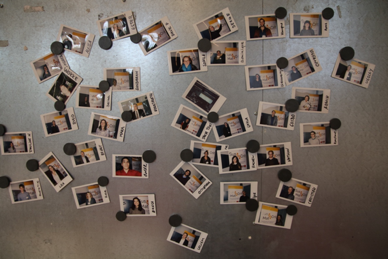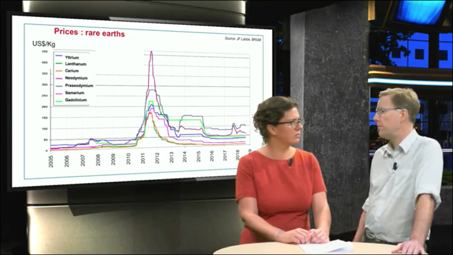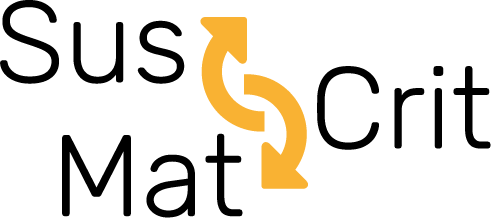Open-access teaching materials on 22 topics available for download; MOOC starts in early 2021
Critical raw materials (CRM) such as cobalt, lithium or the Rare Earth Elements (REEs) are essential for the technologies that drive sustainable societies, but their availability is frequently threatened or unsecure. CRM are typically subject to complex international supply chains and frequently have an unfavourable social and ecological footprint, and pose a special challenge to the Circular Economy due to high mixture of metals, small amounts of raw materials per product, and a low price elasticity of demand. In order to establish an effective Circular Economy, an integrated approach to CRM is required, including design, business, and whole value-chain thinking.

Photo board at the SusCritMat Autumn School for Professionals in Delft, October 2018
Started in April 2017, the education project SusCritMat on the Sustainable Management of Critical Raw Materials was successfully completed recently on March 31st, 2020. SusCritMat, funded by EIT Raw Materials, aimed to educate people from Master’s student level up – both in industry and academia – about important aspects of critical raw materials, supply chain risks and sustainability. In a novel concept, it introduced courses on these complex and interdisciplinary topics in a modular structure, adaptable to a variety of different formats. A major outcome of the project was the development of uniform learning materials covering 22 topics in five categories that are available free of charge on the SusCritMat website.
The materials established in SusCritMat have been tested and refined using the feedback of participants in the various SusCritMat events that were held during the project runtime. The developed contents and modules were already successfully transferred into different courses within Europe: SusCritMat provided among others a SPOC “Sustainable management of critical raw materials” with a focus on cobalt which was integrated at Leiden University as part of the Masters programme “Governance of Sustainability” and as a full stand-alone version in the Masters programme “Industrial Ecology” in spring semester 2020 with a total of 68 master students taking part in it. Furthermore, several course contents were transferred to other educational programmes, such as the SusCritMat scenario development exercises on cobalt, lithium, REEs and indium in the education of science teachers at the Swiss University of Applied Science and Arts in Muttenz and Brugg/Windisch, Switzerland, or the integration of teaching materials in the Master course «Sustainable management of Materials» at the Technical University of Denmark.
Building on the success of the SusCritMat project, the succession project SusCritMOOC was launched this April 2020. The project will establish a Massive Open Online Course (MOOC) on the sustainable management of critical raw materials which is available for free for everyone interested all over the world. By establishing SusCritMOOC, the consortium responded to the need for more content on CRM in an online format. Furthermore, as the SusCritMat topics are closely related to the challenges that our society is currently experiencing – such as the transition to cleaner mobility and energy, addressing climate change and attaining the Sustainable Development Goals – the outreach of the SusCritMat contents can be increased significantly by being able to educate more people as would be possible by mere on-site events. Participants can check their progress through exercises, and they can obtain a certificate at the end of the course if they want to. In addition to the online learning format, two additional summer and winter schools will provide the opportunity to learn in a group and discuss with the experts face-to-face. Also, teachers will be educated on how to use the MOOC course in their own teaching, combining participating in the online course with classroom Q&A, hands-on exercises and discussions of current cases. The SusCritMOOC consortium will stay the same as in the SusCritMat project, supported by renown external experts who will facilitate an outreach to other communities.

Online teaching material in SusCritMat – to be offered as a full Massive Open Online Course in the follow-up project SusCritMOOC
SusCritMOOC will cover a series of important aspects regarding CRM: consumption of natural resources, raw materials limitation, economic and political conditions that influence supply security, air and water pollution, recycling, the economic impact on European industry, and the need for a transition towards a Circular Economy. New aspects related to recent global events such as trade wars and the COVID-19 pandemic will complete the programme. The MOOC is planned to be available by the beginning of 2021. Until then, stay tuned and keep updated here.
A free online training in the form of a three-days evening course will take place on October 14-16, 2020. More information and registration here.


